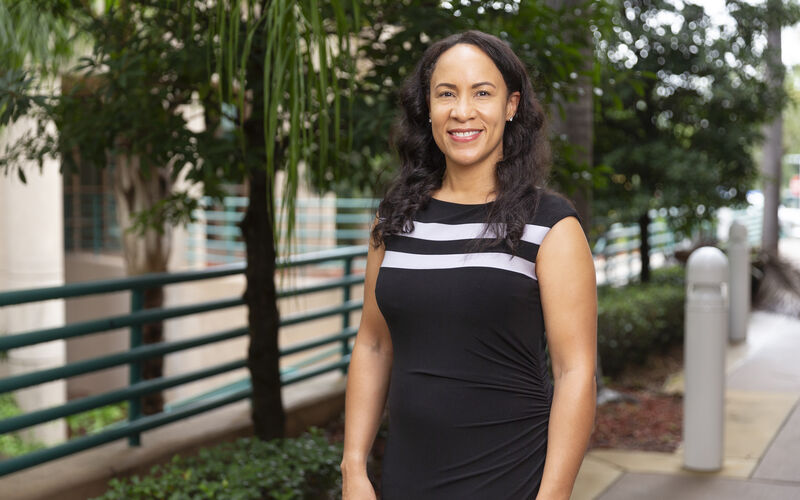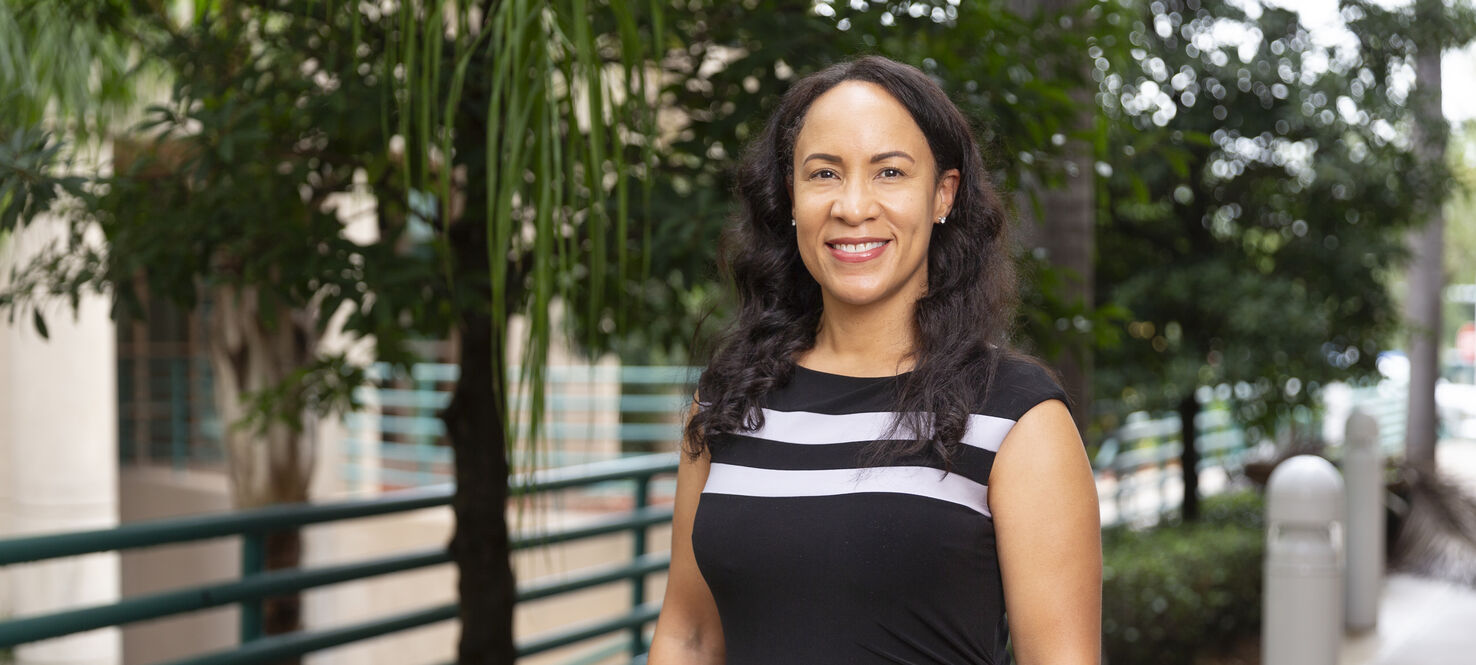Untraditional Career Path Took Her From Pharmacy to Hematology
SPECIAL SERIES: WOMEN IN ONCOLOGY
Women faculty at Moffitt Cancer Center come from different backgrounds around the globe. Their areas of research and clinical care span the entire cancer continuum, including clinical science and trials, basic science, epidemiology, health outcomes, medical physics and more. Community involvement and mentorship among faculty are foundational, and we celebrate the essential roles women play in making a difference at the cancer center and in society.
Meet Dr. Alison R. Walker
Alison R. Walker, MD, received her medical degree from the University of Rochester School of Medicine and Dentistry. She remained at the University of Rochester and completed both an internal medicine residency and hematology oncology fellowship in her hometown of Rochester, New York. In 2022, she joined Moffitt Cancer Center from The Ohio State University, where she served as a professor in the Department of Internal Medicine, Division of Hematology. Walker’s clinical and research interests are in the care of patients with myeloid malignancies, specifically acute myeloid leukemia and myelodysplastic syndromes. She is particularly interested in identifying ways to deliver care that maximize resource utilization and achieve superior patient and provider satisfaction.
What made you want to go into medicine as a career?
My path to medicine was perhaps different from others in that I initially went to pharmacy school with no intention of attending medical school and practiced as a pharmacist for a year before applying. During my clinical rotations in pharmacy school, I realized that I wanted to have more interactions with patients and their families. At that time, pharmacists were primarily a source of information to patients and team members, and while I enjoyed doing that, I felt called to do more. That is what led me to apply to medical school and start down this path.
What made you go into oncology specifically?
I knew that I wanted to become a leukemia doctor when I was a first-year medical student at the University of Rochester. I remember it like it was yesterday. I was sitting in a lecture hall listening to one of the hematologists, who would later become one of my long-term mentors, talk about blood cells and leukemic blast cells, and I was fascinated. Hematopoiesis seemed very systematic and organized but was also very visual, and I really enjoyed it. From that moment, I knew this was what I wanted to do. I finished medical school in 2002, and although it is more than 20 years later, I still feel the same way.
What are you working on right now that you are most excited about?
I am most excited about helping to develop the Women in Oncology mentoring program. I hope to facilitate and create opportunities, not just for early career faculty but for the often forgotten middle and more senior female faculty member. As we continue to expand and grow, there will be many opportunities for faculty who are perhaps at a crossroads and wondering what else can I do here? They enjoy taking care of their patients and their research is important to them, but they want to be challenged to develop professionally. My hope is that this program will be a steppingstone or a way for faculty to be exposed to these opportunities. I also hope it is a way to create a sense of community among the women at Moffitt, not just in medical or surgical oncology, but also in radiology, research and pathology. There are so many amazing, smart and impressive women in this organization. We can all learn from each other and lift each other up.
What’s the biggest challenge you’ve had to face, and how did you overcome it?
The biggest challenge I faced professionally was accepting that my academic path would be different from those around me, and that focusing on my strengths while discovering my true passion and purpose would bring me the career satisfaction that I was seeking. When I started my career in 2008, I aimed to be a tenure track clinical investigator, writing grants and presenting at national meetings. While I did experience success in those areas, I eventually realized that wasn’t where I felt the most fulfillment.
At a career review four years into my assistant professorship, despite working long hours and many weekends, I was told it could take another six to 10 years for promotion. That moment forced me to reflect — I couldn’t see myself working any harder than I was already, and so I realized I needed a change. I switched from the tenure track to a clinical investigator track. And while I continued to write trials, I also focused on teaching and education, becoming the fellowship program director. I also pursued additional education to better understand the intersection of health care and business.
This shift helped me to discover that I enjoy mentoring others, especially early career faculty, to recognize their strengths and pursue their true passions. Admitting that my original goal wasn’t right for me was hard, but we are only one decision away from changing our lives. For me, that decision has led to much greater happiness and fulfillment.
How can we get the next generation excited about pursuing a career in oncology?
The most important thing is for people to pursue a career that excites them, where they feel a sense of purpose and can see the value they are adding. In oncology, there are countless ways to contribute, whether it’s working in radiation oncology as a physicist to develop treatment plans for patients with breast cancer, working to reduce hospital-acquired infection rates or teaching medical and nursing students. The field offers so many diverse opportunities. The key is helping individuals embrace their unique strengths so they can discover meaningful ways to impact the lives of patients and families.
Can you share one patient story that has really impacted you?
I vividly remember a young patient in his late 20s diagnosed with acute promyelocytic leukemia, a life-threatening but potentially curable form of leukemia once remission is achieved. After presenting with a severe hemorrhagic stroke, he was in a coma for weeks while we treated him with chemotherapy. Although his prognosis was uncertain, his family asked that we continue all efforts, which we did. Remarkably, he recovered fully and has remained in remission. For years, he and his family visited me annually, always expressing gratitude for that initial episode of care. This experience reminds me of the profound impact we have on patients and their families, and the importance of giving people a chance.




